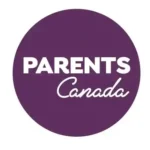Private School
4 min Read
Which type of education should you pick?

October 3, 2019
Private School
4 min Read

October 3, 2019

Canada doesn’t have a homogenous private-school system—there are a bunch of different types of independent schools, all with different approaches to education. Here are the most common throughout the country for you to consider.
Co-ed schools
Co-educational, or co-ed, schools are made up of boys and girls who attend classes together. Some believe that going to school together promotes cooperation in girls and boys.
Single-gender schools
In these schools, the student body is made up of either boys or girls. Some say boys and girls experience less peer pressure when separated, focus more on learning and operate differently in school without the distraction of the opposite sex. Single-gender schools may help break down gender roles and stereotypes, leading to more girls taking math and science courses, for example.
Religious schools
Canada has many schools based on the major world religions. Depending on where you live, you might have local schools available for these faiths: Bahá’í, Christian (specific denominations or non- denominational), Hindu, Islamic, Jewish and Sikh. Faith-based schools offer religious instruction, as well as government-mandated full academic curricula. The faith’s general worldview is reflected in teaching and is part of the life of the school. Parents should learn about a school to ensure that, while it gives students a deeper knowledge of their faith, it also promotes respect for other faiths and worldviews, which, of course, is important for interacting in Canada’s diverse society.
University preparatory
Dubbed “prep school,” the focus here is on preparing students for university and helping them get into the programs of their choice. Academic studies are super intense, but rest assured there are strong academic supports in place. Some courses offered later in high school are considered university-level and can be applied as university credits. Some schools offer international curricula, such as International Baccalaureate, Advanced Placement, Cambridge and Round Square. These schools tend to have very high rates of university acceptance. Costs such as tuition are significant, but facilities, resources and co-curricular activities are typically outstanding.
Montessori
Montessori favours a student-centred, individualized approach to education. The method is named after Dr. Maria Montessori, who founded it in the early 1900s and is based on her observations of young children around the world. Montessori education became more popular in North America in the 1960s. Classes include kids of various ages; students learn at their own pace and teachers introduce new lessons when students are ready.
Waldorf
Waldorf education was founded by Rudolf Steiner, an Austrian scientist and philosopher. It’s named after a German factory at which Steiner created a school for workers’ children in 1919. Steiner insisted on a 12-year school schedule for all children of both genders, where teachers would have great control. Waldorf schools are independently run but must be accredited as embodying Waldorf principles and teaching practices. The philosophy emphasizes experiential learning for the whole child. Schools provide a calm setting, with home-like design in classrooms for younger grades.
Reggio Emilia
This early-childhood-educational approach was founded by Italian teacher Loris Malaguzzi in the town of Emilia Romagna after World War II. It is a complex approach that includes emphasizing independent thinking, cooperation, special layout of schools to encourage learning and discovery, and documenting children’s daily experiences. In this child-led system, teachers guide students to develop their ideas and express their learning through a wide range of materials and experiences.
Specialty programs
Some schools specialize, such as those with programs for children with special needs, or with specific interests, such as arts education or sports development. These are great options if your child is exceptionally talented and is considering pursuing arts or sports as a career choice.
Originally published in the 2019 Private School Guide.